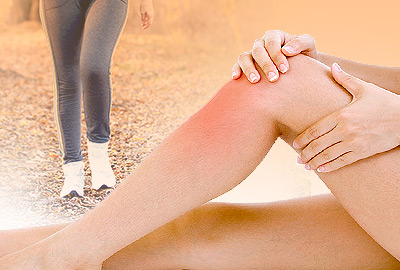Insomnia - being unable to fall asleep or stay asleep - can be an incredibly difficult condition to experience. As women pass through menopause, changes occur in their sleeping patterns, and insomnia becomes more likely. If you are suffering from difficulty falling asleep, try one of the best natural sleep aids to improve your sleep.
Warm Milk
One of the most classic remedies for a sleepless night, and one likely to be recommended by a mother or grandmother, warm milk can help you fall asleep faster. Although most people suggest it as a soothing and relaxing way to calm yourself, it also has the benefit of providing your body with plenty of calcium, which can help your body produce sleep chemicals.
Chamomile Tea
Another classic, chamomile tea is popularly marketed as an all-natural sleep aid. Although few studies have been performed on people, animal studies have shown that chamomile does induce relaxation and sleep. It is possible that these effects come from the herb's ability to influence neurotransmitters in the brain, but although its full effects are not completely understood, it is an effective way to get more sleep.
Lavender
Popular for its scent, lavender is an herb that is well-known for helping to calm and soothe the body. Although the mechanism is not understood, it seems that this effect extends to helping the body fall asleep. Lavender can be drunk as a tea, but it seems most common and most useful when the essential oil is diffused throughout a room.
Valerian Root
Valerian is an herb that has a long history of being used as a sleep aid. It has been popular since ancient times, and it is still in use today. It can easily be found in capsule form from many different herbal shops. However, if you want a quick fix for your sleeping problems, valerian may not be right for you, as it can take a few weeks to kick in.
Kava
Grown on many Pacific islands, kava is a root that has been used in important social gatherings for thousands of years by people living on islands like Fiji. In more modern times, kava has become known for its sedative and relaxing effects, and it is commonly used in preparations for natural sleep aids for adults.
Melatonin
Melatonin is a hormone that is naturally produced in your body in order to regulate your sleep cycle. Levels of melatonin in your body rise at night, allowing you to sleep. Because of this, taking melatonin can help to improve your sleep quality by increasing the amount of melatonin available to help your body fall asleep.
Magnesium
A mineral found naturally in the body, magnesium has been found to play an important role in sleeping. It decreases levels of cortisol,the stress hormone , which makes it easier for you to relax and fall asleep. Most people receive magnesium from foods, but it can be taken as a supplement as well.
Be sure to consult a doctor before taking any of these sleep aids, especially if you are taking any other medications, in order to prevent any health problems or medical interactions. To learn more about managing sleep problems, read about these habits to combat sleep disorders.
Sources
- Bauer, B.A. (2014). Is melatonin a helpful sleep aid - and what should I know about melatonin side effects?Retrieved May 18, 2017, from http://www.mayoclinic.org/healthy-lifestyle/adult-health/expert-answers/melatonin-side-effects/faq-20057874
- National Center for Complementary and Integrative Health. (2017). Sleep Disorders: In Depth. Retrieved May 18, 2017, from https://nccih.nih.gov/health/sleep/ataglance.htm#hed5
- National Institutes of Health. (n.d.). Do natural products help people sleep? Retrieved May 18, 2017, from https://www.nichd.nih.gov/health/topics/sleep/conditioninfo/Pages/natural-products.aspx
- Srivastava, J.K. et al. (2011). Chamomile: A herbal medicine of the past with bright future. Molecular Medicine Reports, 3(6), 895-901. Retrieved from https://www.ncbi.nlm.nih.gov/pmc/articles/PMC2995283/




